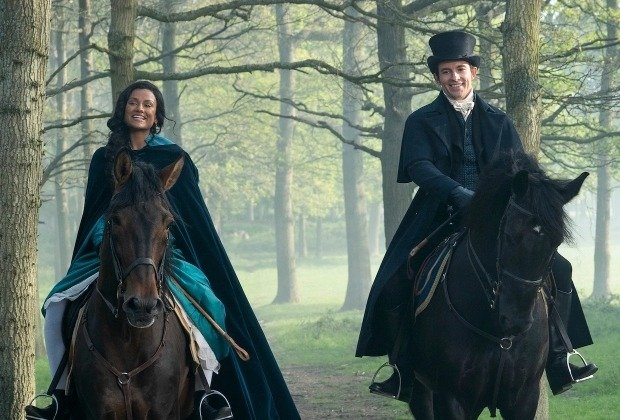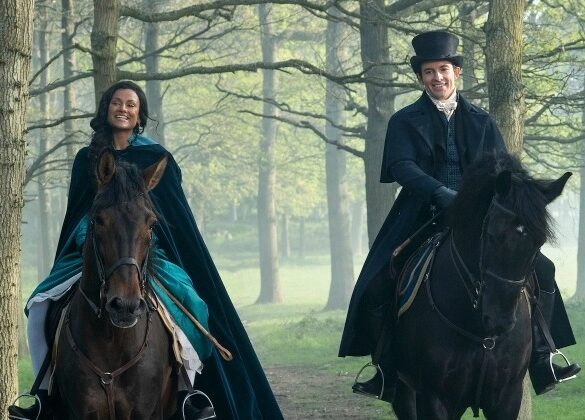When Bridgerton first came out a year ago and half the world went crazy over it, it was because it made for some fun, escapist, fantasy television in a world that was looking exceedingly grim. With a global pandemic knocking at our doors and lockdowns in almost every country, it felt good to spend a few hours watching people whose problems were so far removed from ours as to be laughable. It was no surprise to anyone when the show was renewed for more seasons.
The casting of Simone Ashley and Charithra Chandran, both actresses of Tamil origin, as the sisters Kate and Edwina created murmurs of excitement from a rather large South Asian viewership. The news that there was going to be an India plotline was received by me by some wary interest. I was equally apprehensive and eager to see if the show would manage to not butcher that cultural representation.
Watching the new season, I was quite taken aback when Ashley’s Kate Sharma reduced me to tears from the very first episode and then continued to do so over the entire course of the show. I knew that there was an Indian writer in the writer’s room: Geetika Lizardi. So perhaps it should not have been a great shock to see such an accurate portrayal of the trauma of a South Asian elder daughter play out on my screen. But it was.

Kate’s shouldering of the family responsibilities at much too young an age, her defensive and wary nature preventing people from getting close to her, her self-denial, her tying her self-worth to the way in which she could be of use to her family and building her own life around the happiness of her mother, sister and even her dog rung chords within the hearts of many. Kate is the epitome of what society has long forced their eldest children to become.
This is true of other cultures as well, which is why we see Anthony Bridgerton, the eldest Bridgerton child of eight (played by Jonathan Bailey), being a mirror to Kate in many ways. But Kate’s characterisation hit me even deeper, being a South Asian woman with a younger sister.

Watching Kate insist on sacrificing her desires for her much-loved younger sister was like hearing my grandmother’s voice in my head again, telling me at as young an age as three that I needed to give up something I wanted because my sister wanted it too.
And no person is to blame for this. It’s the way we are socialised, the way my grandmother herself was socialised growing up.
Kate locking herself into a closet to fall quietly apart in one of the most beautiful shots in Episode 6 and the swift manner in which she recollects herself and steps out to face the consequences was like looking at a reflection of myself. Her final conversation with her mother, where her mother realises too late what has been happening and apologises for her role in putting Kate in the position she found herself in, healed wounds that I did not know I had.
The show did indeed fumble certain parts of the Indian representation. I am not alone in being critical of the mess of different languages and pan-Indian representation.
I was quite confused over ‘Kathani’, a name that does not exist in any Indian language as far as I know, being Kate’s full name and quite displeased that it was Anthony, the white love interest, and not either her mother or sister in a more intimate setting that introduces us to it. I was very unhappy about the lack of more scenes between the three Sharma women as a family enjoying each other’s company.
But I do raise my hat to the writers on Kate’s characterisation. As a South Asian elder daughter, it was gratifying and validating to watch. All of us have been Kate at some point of time. All of us have dealt with matters the way Kate has. And it was very satisfying to watch her be flawed and imperfect while never being rendered unsympathetic. Her healing and happiness, when it does come at the end, never feels unearned.
Kate is allowed to reconcile with her mother and sister and build stronger bonds within her family before she gets her happily ever after with the man that she loves. For many of our background, who have been taught to value family bonds and sisterhood very deeply, that was both powerful and cathartic. I would not have had it any other way.

Rittika Dhar | Writer at ECLECTIC BRAINS











